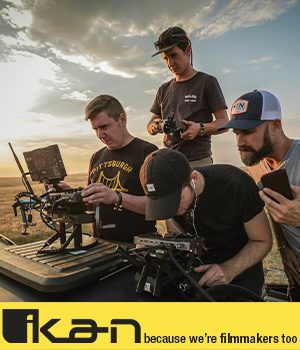- Forum
- Photography and Camera Forum
- Taking the Photo | Editing | The art of Photography!
- Beginner Photography Forum
- Lens rendering meaning
Lens rendering meaning
-
 Topic Author
Topic Author
- Liem Stailey
- Lone Wolf
-
- Canon 5D Mark II
- Followers: 62
- Posts: 106
-
Points:
2391
Post #647533
How can a lens render anything? The term from first glance doesn't make sense.
-

- Nikon Shooter
- Oh Wise One
-
- 3S 3X 810 850
- Followers: 197
- Posts: 13795
-
Points:
88932
Post #647534
Any lens may be an important part of a capture. Capturing
with or without optical qualities or deficiencies but never
render anything.
Light is free… capturing it is not!
-
 Topic Author
Topic Author
- Liem Stailey
- Lone Wolf
-
- Canon 5D Mark II
- Followers: 62
- Posts: 106
-
Points:
2391
Post #647536
-

- Sassy Girl
- Lone Wolf
-
- Nikon D810
- Followers: 80
- Posts: 248
-
Points:
5031
-

- Nikon Shooter
- Oh Wise One
-
- 3S 3X 810 850
- Followers: 197
- Posts: 13795
-
Points:
88932
Post #647594
among other things.
Light is free… capturing it is not!
-

- Shadowfixer1
- Photo Elder
-
- Olympus OMD E-M1 MKII
- Followers: 1349
- Posts: 5551
-
Points:
73205
Post #647596
In a way it does render an image. What it means is each lens will produce (a/k/a render) a different look as far as contrast, color tone, sharpness and quality of bokeh it produces or as some say renders. The image you see through a lens does not exactly replicate the real world thus it renders the image. This is what they mean when they discuss or refer to a lens rendering the image.Liem Stailey wrote: I saw this mentioned in someones comment, but not a clear indication on what this means. Google didn't help either. Just a couple other post on other forums with no clear answer.
How can a lens render anything? The term from first glance doesn't make sense.
Post #647598
Shadowfixer1 wrote:
In a way it does render an image. What it means is each lens will produce (a/k/a render) a different look as far as contrast, color tone, sharpness and quality of bokeh it produces or as some say renders. The image you see through a lens does not exactly replicate the real world thus it renders the image. This is what they mean when they discuss or refer to a lens rendering the image.Liem Stailey wrote: I saw this mentioned in someones comment, but not a clear indication on what this means. Google didn't help either. Just a couple other post on other forums with no clear answer.
How can a lens render anything? The term from first glance doesn't make sense.
^^^This.
It's a "figure of speech". Each lens has the potential to bend and manipulate light in its own regard. It's not technically rendering it, however, it does play a role in how the light hits the sensor so that the sensor itself can render the image. When I use the term "rendering", I usually accompany it with a description of what I am referring to and not necessarily referring to the lens alone, but the entire set up.
-

- fmw
- Newbie
- Followers: 12
-
Points:
12122
Post #647746
I don't think the issue is any more complicated than that. Some lenses just have characteristics that differ from other lenses. These things mattered more in the film days than they do today.
-

- garyrhook
- Oh Wise One
-
- Nikon D850, Nikon D750, Panasonic G7K
- Followers: 912
- Posts: 11103
-
Points:
67681
Post #648054
fmw wrote: I don't watch internet videos so I'm not sure what the message was. But I can tell you that single focal length lenses "render" with higher contrast than zooms. Slow lenses also produce higher contrast than fast lenses. But I wonder if it matters since contrast is easily adjustable in post process to a degree greater than the differences in the lenses. Lenses with more aperture blades produce out-of-focus highlights in a manner that some people think is better than those with fewer blades. Optical aberrations produce various "renderings" that differ from lenses with different amounts of those aberrations.
I don't think the issue is any more complicated than that. Some lenses just have characteristics that differ from other lenses. These things mattered more in the film days than they do today.
I disagree that it mattered more in the film days. How a lens creates an image is what the term means, and the characteristics of the lens will be evident in the result (as mentioned above).
Rendering: the manner in which a result is produced.
-
 Topic Author
Topic Author
- Liem Stailey
- Lone Wolf
-
- Canon 5D Mark II
- Followers: 62
- Posts: 106
-
Points:
2391
Post #648057
-
 Topic Author
Topic Author
- Liem Stailey
- Lone Wolf
-
- Canon 5D Mark II
- Followers: 62
- Posts: 106
-
Points:
2391
Post #648490
-

- fmw
- Newbie
- Followers: 12
-
Points:
12122
Post #648591
garyrhook wrote:
fmw wrote: I don't watch internet videos so I'm not sure what the message was. But I can tell you that single focal length lenses "render" with higher contrast than zooms. Slow lenses also produce higher contrast than fast lenses. But I wonder if it matters since contrast is easily adjustable in post process to a degree greater than the differences in the lenses. Lenses with more aperture blades produce out-of-focus highlights in a manner that some people think is better than those with fewer blades. Optical aberrations produce various "renderings" that differ from lenses with different amounts of those aberrations.
I don't think the issue is any more complicated than that. Some lenses just have characteristics that differ from other lenses. These things mattered more in the film days than they do today.
I disagree that it mattered more in the film days. How a lens creates an image is what the term means, and the characteristics of the lens will be evident in the result (as mentioned above).
Rendering: the manner in which a result is produced.
It mattered more in the film days because we didn't have digital photo editing. Certainly you remember that.
-

- garyrhook
- Oh Wise One
-
- Nikon D850, Nikon D750, Panasonic G7K
- Followers: 912
- Posts: 11103
-
Points:
67681
Post #648601
fmw wrote:
garyrhook wrote:
fmw wrote: I don't think the issue is any more complicated than that. Some lenses just have characteristics that differ from other lenses. These things mattered more in the film days than they do today.
I disagree that it mattered more in the film days. How a lens creates an image is what the term means, and the characteristics of the lens will be evident in the result (as mentioned above).
Rendering: the manner in which a result is produced.
It mattered more in the film days because we didn't have digital photo editing. Certainly you remember that.
Well, I'm not entirely sure I'm following your point, but if you mean that we can now manipulate an image in a manner that replaces a lens' characteristics, then I'll say, sure, in some respects. But there are things that you can't do in post. So I stand by my statement: lens characteristics matter.
As for the "film days" I, happily, never did film. Other than a 110 pocket camera. My experience is 100% digital.
- Forum
- Photography and Camera Forum
- Taking the Photo | Editing | The art of Photography!
- Beginner Photography Forum
- Lens rendering meaning
Latest Reviews
Nikon’s retro-looking Nikon Zfc is anything but retro. Under its classic body is a host of features and amenities that make it a worthwhile compact mirrorless camera for 2024.
The Canon EOS R50 is one of the newest R-system cameras from Canon. Is it worth your money? Find out all the details you need to know in this comprehensive review.
The Sony FE 70-200mm f/2.8 GM OSS II is Sony’s flagship mirrorless zoom lens. As such, it’s loaded with features and has a top-shelf build quality that makes it a top pick!
The Leica SL2-S is an attractive, premium mirrorless camera with photo and video specs that are sure to impress. And with the legendary Leica name, you know this camera exudes quality!
Forum Top Posters
-
1Travis Brunson 1 post
-
2Razky 1 post
-
3Esseff 1 post
-
4ShutterPal 1 post
-
5CaptNemo 1 post
-
6db3348 1 post
-
7Garbo 1 post
Latest Articles
Blue hour photography might not be as well known as golden hour photography, but it is every bit as good a time to create epic images of landscapes. Learn how in this quick tutorial!
Nikon’s retro-looking Nikon Zfc is anything but retro. Under its classic body is a host of features and amenities that make it a worthwhile compact mirrorless camera for 2024.
Moving from taking snapshots of your dog to creating beautiful images doesn’t have to be that difficult! Use the tips outlined in this dog photography guide, and you’ll get better results in no time.
Acrylic print photos are a beautiful way to display your favorite images. But they don’t come without some questions. Get all the answers you need about this medium in this guide!
Where do you get your landscape photography inspiration? Is it from masters like Ansel Adams? Or perhaps viewing art from other genres? We’ve got these and a few other sources for you to check out!
The Canon EOS R50 is one of the newest R-system cameras from Canon. Is it worth your money? Find out all the details you need to know in this comprehensive review.
Too often, affordable online printing companies don’t meet your expectations of what a print should look like. But there are some choices that combine affordability with superb quality!
Self-critique is an important component of your journey to improving as a photographer. Use these simple tips about critiquing your work as a means to make faster progress with your art.















